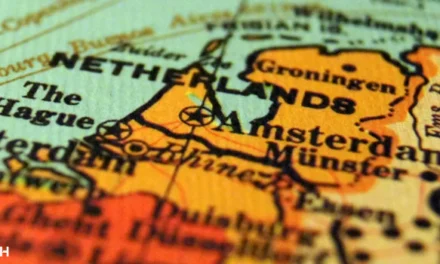In the intricate web of international relations, the question of Somaliland’s stance towards Israel has garnered significant attention, particularly given the unrecognized status of the self-declared state. This comprehensive article delves into the nuances of Somaliland’s relationship with Israel, examining the historical context, political considerations, and the various factors that shape this complex dynamic.
Historical Background
The Birth of Somaliland and Its Quest for Recognition
Somaliland declared independence from Somalia in 1991, following a prolonged civil war. Since then, the self-declared state has been on a quest for international recognition, facing numerous challenges along the way. The Somali diaspora, including those residing in Israel, has played a crucial role in shaping Somaliland’s foreign policy and advocating for its recognition.
Israel’s Approach to Unrecognized States
Israel has a complex history when it comes to recognizing unrecognized states. While the potential strategic benefits of establishing ties with Somaliland are evident, Israel’s foreign policy decisions are often influenced by the ongoing Israeli-Palestinian conflict and the need to maintain delicate regional balances.
Political Considerations
Somaliland’s Balancing Act: Regional Dynamics and Alliances
Somaliland’s relations with neighboring countries and regional powers, such as Ethiopia, Kenya, and the Arab League, are crucial factors in its foreign policy decisions. The influence of the Organization of Islamic Cooperation (OIC) and the potential impact of recognizing Israel on Somaliland’s regional standing cannot be overlooked.
The Role of Religion and Cultural Factors
Islam plays a significant role in Somaliland’s society and politics, and the perspectives of religious leaders can shape foreign policy decisions. However, the potential for cultural and religious ties between Somaliland and Israel should not be discounted, as both societies share a rich history and cultural heritage.
Perspectives and Debates
The Somaliland Government’s Stance
Official statements and positions from Somaliland’s leadership have been cautious and measured regarding the issue of establishing ties with Israel. Internal debates and divisions within the government reflect the complexity of the matter, with some advocating for the potential economic and political benefits of such a move, while others express concerns about regional backlash.
Public Opinion and Civil Society
Public sentiment in Somaliland towards Israel is diverse, with some segments of society expressing support for closer ties, while others remain skeptical or opposed. Civil society organizations and grassroots movements have played a role in shaping public discourse on this issue, and the impact of media coverage cannot be ignored.
The Diaspora’s Influence
The perspectives of the Somali diaspora, including those residing in Israel, have the potential to influence Somaliland’s foreign policy decisions. Diaspora organizations have been active in promoting or opposing ties with Israel, reflecting the diverse views within the Somali community.
Conclusion
Somaliland’s stance towards Israel is a complex and multifaceted issue, shaped by historical experiences, political considerations, religious and cultural factors, and diverse perspectives from various stakeholders. While the potential benefits of establishing ties with Israel are evident, Somaliland must navigate a delicate balancing act, taking into account regional dynamics, alliances, and the potential impact on its quest for international recognition.
The path forward will require ongoing dialogue, understanding, and a commitment to finding a balanced approach that respects Somaliland’s sovereignty and self-determination while maintaining regional stability and cooperation.
FAQ: Does Somaliland Support Israel?
Currently, Somaliland does not have formal diplomatic ties with Israel.
What is the relationship between Somaliland and Israel?
Somaliland does not recognize Israel as a state and has not established any diplomatic relations with Israel.
Are there any efforts to improve relations between Somaliland and Israel?
There have been discussions and speculations about potential diplomatic ties between Somaliland and Israel, but so far no formal relationship exists.
How do other countries in the region view Somaliland’s stance on Israel?
Somaliland’s position on Israel is seen as complex within the Muslim world, as it is not aligned with the broader stance of many Muslim-majority countries that do not recognize Israel.
Has Somaliland ever considered recognizing Israel as a state?
Somaliland has avoided approaching Israel to prevent straining its relations with other countries in the region that do not have diplomatic ties with Israel.
What factors influence Somaliland’s foreign policy towards Israel?
Somaliland’s foreign policy decisions are influenced by regional dynamics, its diplomatic relations with neighboring countries, and the broader geopolitical landscape in the Horn of Africa.
Is there any indication that Somaliland’s stance on Israel might change in the future?
While there have been discussions about the possibility of Somaliland establishing diplomatic ties with Israel, there is currently no concrete indication that such a change is imminent.
Additional Resources
For further reading and information on this topic, here are some reputable sources and organizations:
- Somaliland Ministry of Foreign Affairs and International Cooperation
- Somaliland Non-Profit Association (SOMNPA)
- Somaliland Mission to the United Nations
- Somaliland Focus
- Somaliland Chronicle
By exploring these resources, readers can gain a deeper understanding of the various perspectives and complexities surrounding Somaliland’s stance towards Israel and its quest for international recognition.





